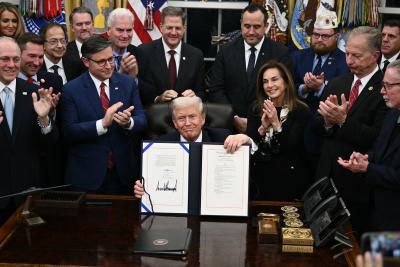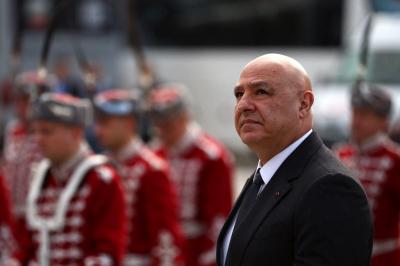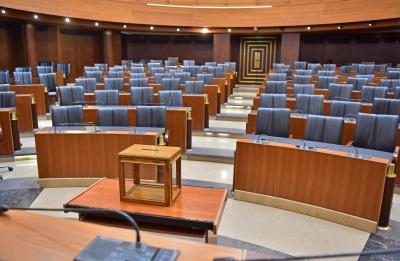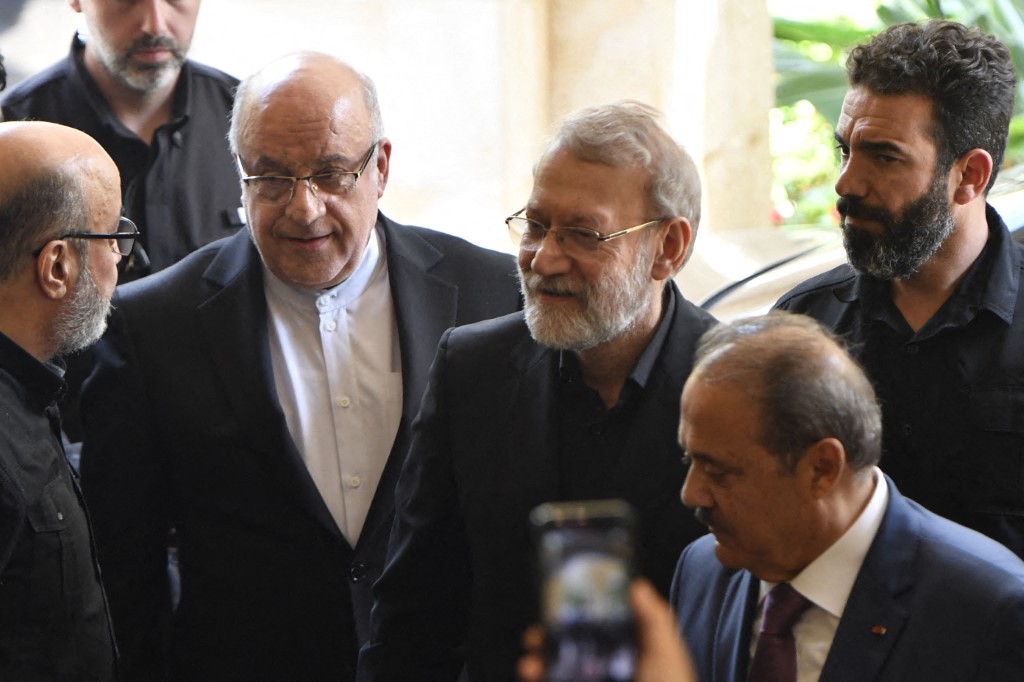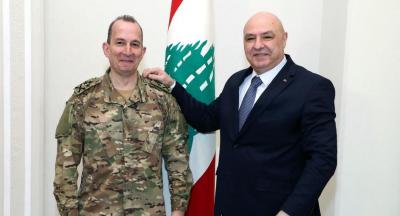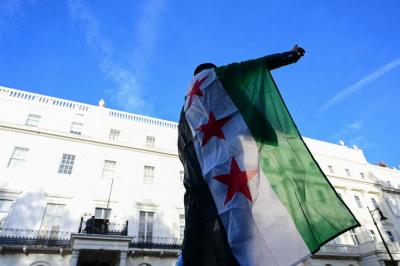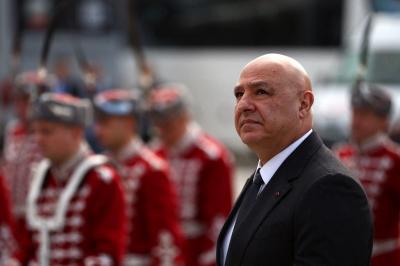The political tremors caused by the visit of Iran’s National Security Council Secretary Ali Larijani to Beirut, preceded by defiant statements against Lebanon’s sovereign decision to restrict weapons to the state and accompanied by populist displays along the airport road, prompted Tehran to mobilize its media and political outlets. The goal was to justify its interference in Lebanese affairs by pointing to American, Western, and Saudi interventions.
In recent days, these outlets launched a campaign against Washington, Riyadh, and Paris, accusing them of imposing “dictates” and “guardianship” over Lebanon and of pushing the Cabinet to adopt its decisive stance against illegal weapons—chiefly "Hezbollah"’s arsenal. The campaign went so far as to threaten to block visits by international envoys, particularly that of U.S. mediator Tom Barrack, if Larijani’s visit were obstructed in any way. Tehran’s rejection of Lebanon’s sovereign decision came laced with threats and incitement, warning that implementing the government’s resolution “will not pass.”
The argument of “American dictates” to justify Iran’s continued breach of Lebanese sovereignty demands clarity on the fundamental difference between U.S. and Iranian involvement in Lebanon.
Washington’s Role vs. Tehran’s Role
First, American engagement in Lebanese issues has almost always taken place with "Hezbollah"’s consent (under Iranian guidance). Two recent examples stand out:
- The 2022 maritime border demarcation, accepted through the shuttle diplomacy of U.S. envoy Amos Hochstein.
- The 2024 ceasefire agreement, built on an American-French document that "Hezbollah" and Iran ultimately accepted without dispute.
Unlike Iran, Washington has never incited Lebanon or Israel to wage war. Rather, it has consistently sought to contain conflicts sparked by Iranian decisions executed through "Hezbollah". This was evident in 1992, 1996, the 2006 July War, and the 2023 “support war.”
Second, U.S. assistance has been directed solely to the Lebanese Army and state security institutions. By contrast, Iran has poured billions of dollars and entire arsenals exclusively into "Hezbollah" and its affiliates. Washington’s motto is “the Army first,” while Tehran’s is “the Party first and last.”
Third, the United States has funded development projects in water, health, education, and social services across Lebanon, including the South, Bekaa, and the southern suburbs of Beirut. Iran, meanwhile, limited such aid to "Hezbollah"-controlled areas, ignoring state institutions.
Fourth, the U.S. and its Western and Arab allies have never opposed decisions taken by Lebanese governments—even those operating under Syrian and Iranian tutelage in past years. Iran, however, has openly and brazenly rejected recent sovereign decisions. The latest examples include statements from Ali Akbar Velayati, senior adviser to Supreme Leader Ali Khamenei, and a Revolutionary Guard commander. These interventions triggered calls from political, social, and governmental actors to expel the Iranian ambassador and boycott Larijani’s visit.
Fifth, U.S. policy—alongside that of its Arab and Western partners—has consistently aligned with Lebanon’s national interests: sovereignty, freedom, justice, institutional reform, and the state’s exclusive right to hold arms and decide on war and peace. The latest American backing of the government’s disarmament decision falls squarely within this framework, reinforcing Lebanon’s path toward sovereignty and reform.
It is true that U.S. policy, whether Republican or Democratic, prioritizes Israel’s security. Yet this priority does not contradict Lebanon’s security interests, whether on its southern border with Israel or its eastern and northern borders with Syria. This reality underpins what became known as the “Barrack Paper,” the product of three rounds of negotiations between the U.S. envoy and Beirut. The Cabinet’s overwhelming approval made it as much a Lebanese document as an American one.
Two Divergent Paths
Measured against these facts, the distinction between U.S. and Iranian intervention in Lebanon becomes stark. American involvement has aimed at reconstruction, progress, reform, and peace. Iranian involvement has fueled destruction, regression, corruption, and war—always under the opportunistic banner of “supporting Palestine.”
The comparison itself has become untenable. These are two irreconcilable lines, two clashing cultures—not only in Lebanon but across the region and the world. After long suffering, Lebanon has chosen its path with Arab and international support: the path of sovereignty, reform, and life.
Please post your comments on:
[email protected]
 Politics
Politics


